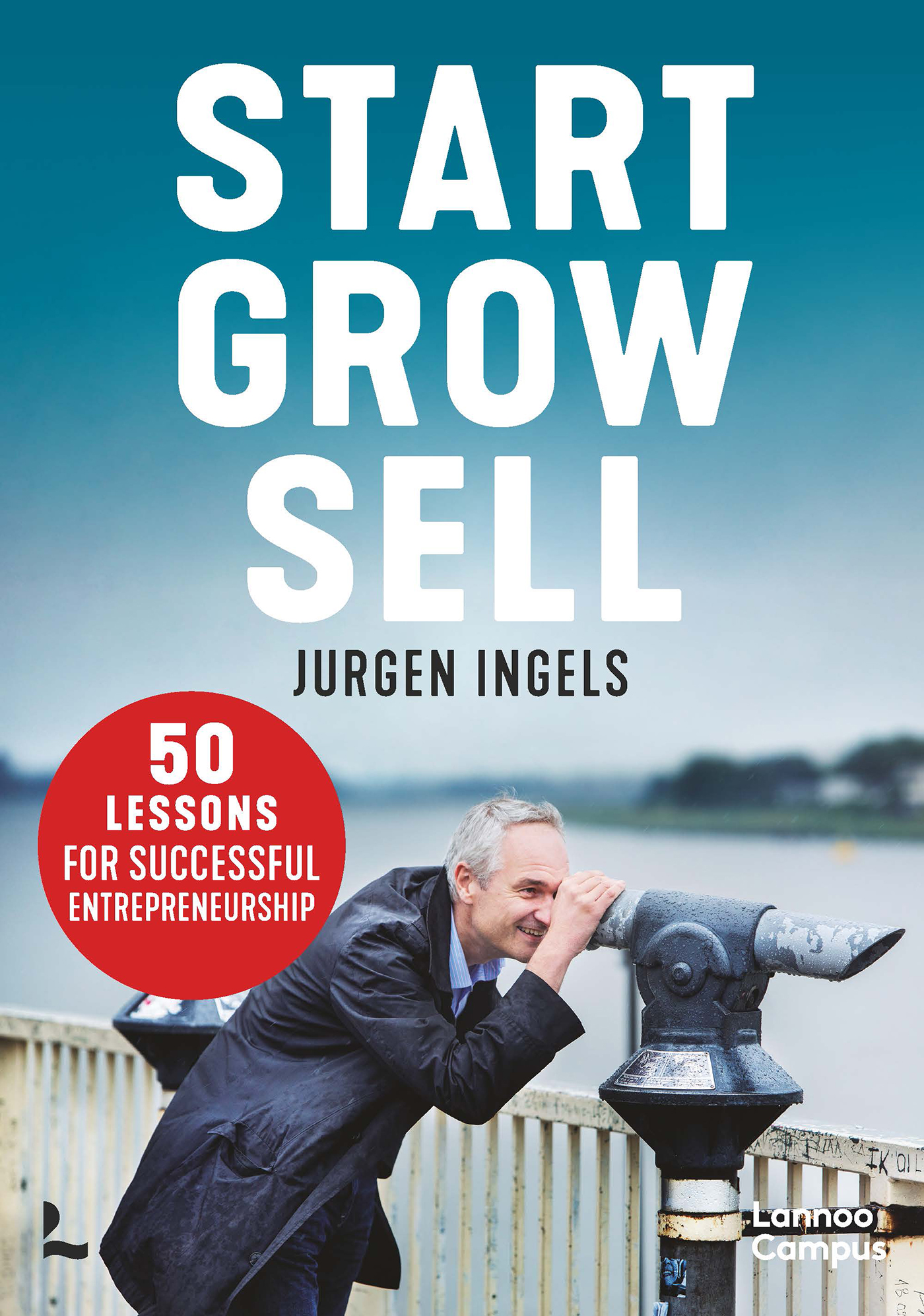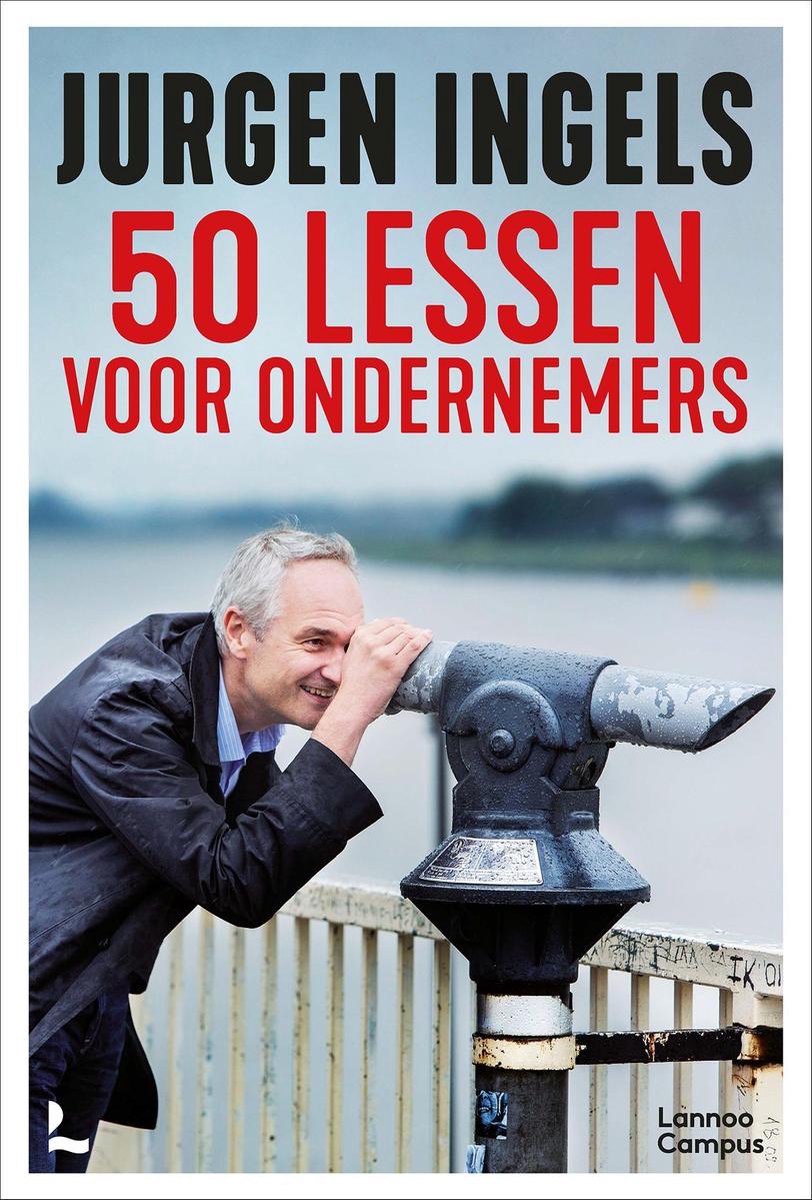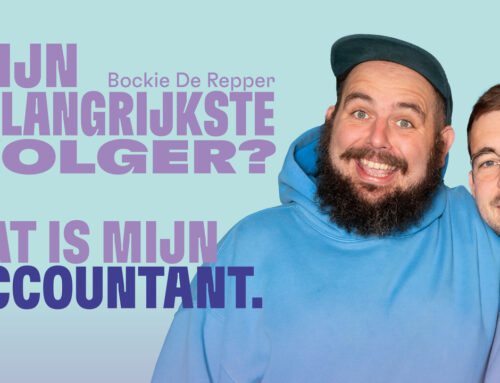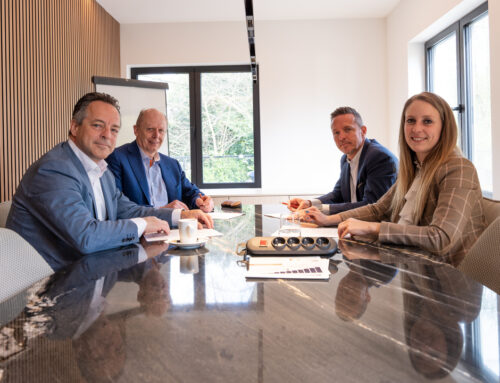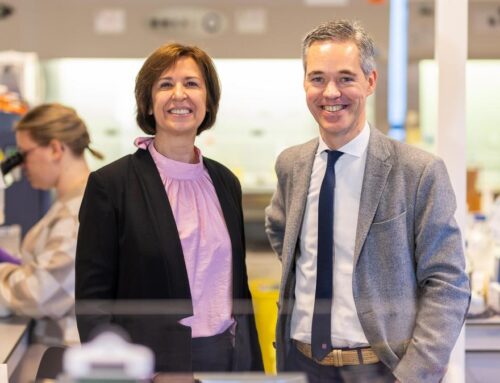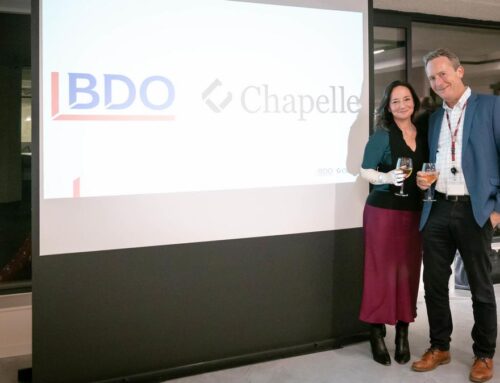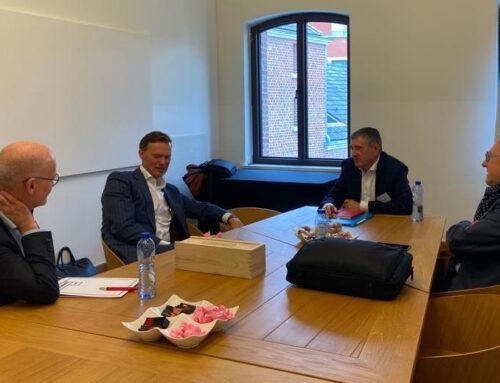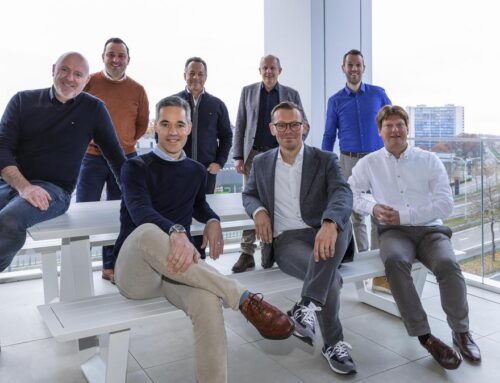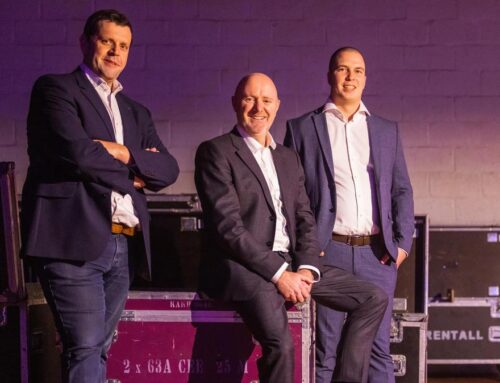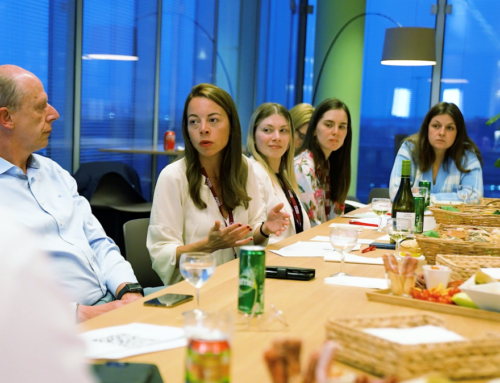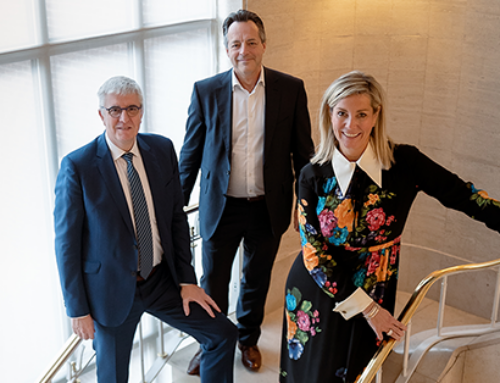“Entrepreneurship comes down to: those who don’t dare, don’t win.”
Top entrepreneur Jürgen Ingels publishes his experiences
From local parties to national events, such as SuperNova and The Big Score. From a lucrative business selling notes and exam questions to setting up international companies, such as Clear2Pay and SmartFin. Top entrepreneur Jürgen Ingels’ journey has been pretty impressive. He has now bundled these experiences in a book with 50 tips for entrepreneurs. Read about his Swedish chocolate adventure, nappies, a Porsche, the turkey syndrome, invoices and wine.
Laurien Van Nieuwenhove, Content Officer BDO Marketing & Communication
“A lot of people ask me for the magic formula for building a successful company from scratch. I’m afraid it doesn’t exist. Entrepreneurship is an adventure with – a lot of – trial and error,” Jürgen Ingels explains during our ‘Easy Speaking’ webinar. His business career began early, at the age of 16 – ‘a necessity’ because of the ‘strict’ rules for going out imposed on him at home. He has bundled the insights gained since then in the book Start, Grow, Sell.
The Swedes don’t gorge on pralines
On the road to success during an interlude in Sweden, Jürgen experienced first-hand that culture is a factor not to be underestimated. There he discovered a gap in the chocolate market: the Swedes were fond of the black gold – and prepared to pay handsomely for it – but there was hardly any quality chocolate for sale. “When our store opened its doors, hundreds of Swedes were queuing outside. However, each Swede bought just one or two pralines. What was going on? While we Belgians buy half a kilo of pralines and devour them in a day, the Swedes treat their bodies much more consciously. Minimalist sinning, you might call it. We had organised taste tests, conducted market research, carefully considered locations and options – but it was the cultural factor that was our kiss of death. Unfortunately, we saw thousands of euros go up in smoke in a small business that quickly threw in the towel.”
The power of the ‘extra mile’
Jürgen draws his philosophy of life from a piece of mathematical wisdom he describes as “the power of the extra mile”. By giving 1% more each day, you quickly gain a significant lead over the competition. The principle also applies the other way around: give 1% less and you soon fall behind. “Consistent behaviour is cumulative. I work, completely focused, every Saturday morning from 7 to 12. That doesn’t seem like a lot – but after a year, the hours add up.”
However, going the ‘extra mile’ does not mean that the bow must always be taut. “I used to believe that hard work was the key to productivity. But that’s how you burn out fast. Now I know that adequate sleep, a balanced diet, regular exercise and the necessary time off are essential.”
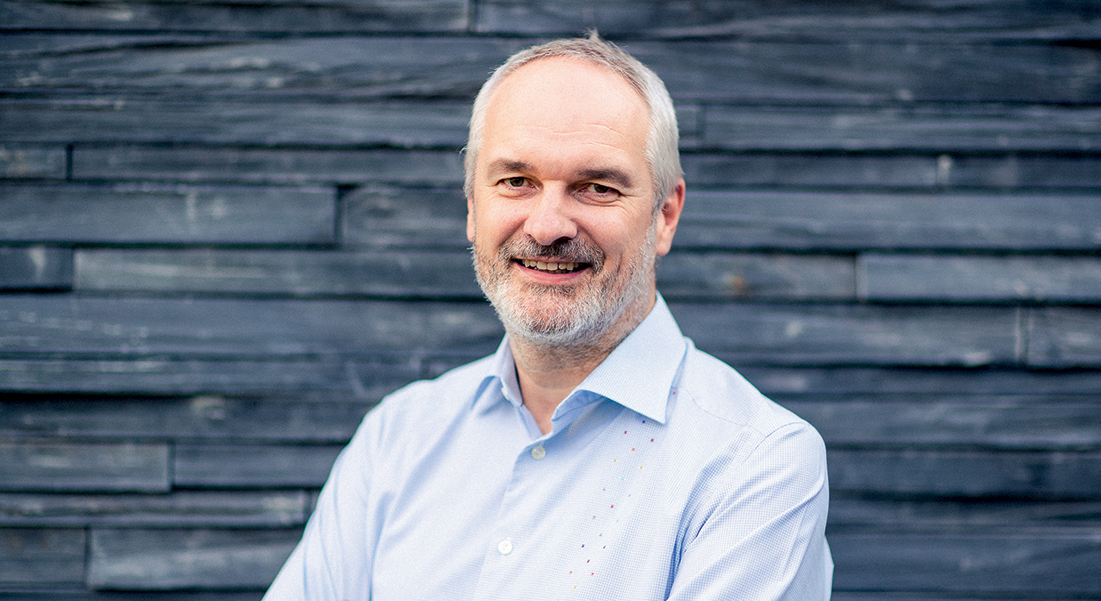
Ingredients for successful entrepreneurship
So entrepreneurship is not a gene you are born with. Still, you have to have some aptitude for it. “For example, a fiery passion, perseverance, a rebellious side and an insatiable hunger for knowledge are indispensable,” Jürgen says. “You also need a bit of luck and a generous portion of courage. You have to dare to take risks, dare to invest. If your idea doesn’t catch on, you’ll at least have another learning experience under your belt. Entrepreneurship is the application of ‘those who don’t dare, don’t win’. But with an intelligent approach.”
Sometimes you just need a nudge. Jürgen was once a director at a company whose CEO bought a Porsche to motivate the sales staff. “The person who had concluded the most deals by the end of the week could take the Porsche home for the weekend. An unnecessarily costly expense I thought at the time, but the idea turned out to work and the cost of the Porsche was recouped in no time.”
Intelligent entrepreneurship is based on a good strategy. Put enough thought into alternative paths. “A lot of people linger in the sector in which they started their careers. Those who acquire extracurricular knowledge in addition to their main activity also acquire new skills and gain an edge.”
The Pampers guy
Jürgen’s strong entrepreneurial spirit is not only the recurring thread in his career. That ambition also seeps into his private life. “Anyone who has or has had small children knows how expensive a pack of nappies is. To reduce the cost, I went looking for a solution. I found it by purchasing a container full of Pampers from a company that had gone bankrupt in Germany. Not only did I have more than enough nappies on hand as a result, I could also sell them on to friends and family. Soon I was known in my neighbourhood as ‘the Pampers guy’. To this day, people stop me in the supermarket and ask if I’m still selling nappies. No, my children are thankfully past that phase.”
Delegating makes you strong
Jürgen does stress one thing: “Don’t put energy into things you don’t have a knack for. Apply the Pareto principle: determine in which 20% of your work you excel, and focus on that. Then, delegate the rest of your tasks. That really boosts the efficiency of your business.” Mutual trust is key to this, without relinquishing control. “Once a month, I go through the invoices while enjoying a good glass of wine. In this way, I stay informed about the comings and goings in the various departments and keep the reins firmly in my hands, without always wanting to do everything myself.”
Delegating does not mean that communicating with your employees becomes superfluous. On the contrary: the time you spend explaining an assignment, you win back double afterwards. Jürgen: “One day, I sent my son to the butcher for half a kilo of turkey fillet. He came home with piles of wrapped slices of turkey. My explanation seemed obvious to me, yet my son interpreted it differently. It wasn’t a disaster, but in a business context such a misunderstanding can have far-reaching consequences.”
Culture is the key to success
Strategy is essential. But culture is even more important, both within your own organisation and in the market in which you operate. “Your company stands or falls according to its employee culture. Creating a good atmosphere doesn’t have to be difficult. For example, I’m a big fan of a bar at the office. It helps break down barriers and you get to know ‘invisible’ colleagues. There’s nothing more embarrassing than standing in a lift with two other people, staring at the ceiling, then discovering later that you are colleagues.”
Investing in the growth of your employees gives them room to develop both professionally and personally. “Don’t be afraid to reorganise teams or recruit new people in this regard. Better a bad product with a good team than vice versa. A good team always finds a way to improve a product.”
Jürgen concludes with one final golden tip. “Remain critical of yourself. During my years at university I was known as ‘the Schumacher of Excel’. I was a demon with the program. Until, years later, a young employee coolly showed me how inefficient I was. The world is constantly changing, so you must too. What you are good at today may already be out of date tomorrow.”

